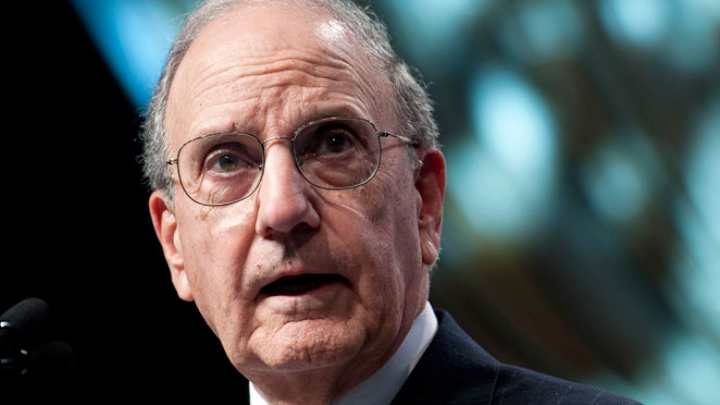Mitchell to NCAA: Penn State making 'steady progress'

STATE COLLEGE, Pa. (AP) -- Penn State is making steady progress in implementing the requirements outlined by the NCAA following the sanctions for the Jerry Sandusky child sex abuse scandal, former U.S. Sen. George Mitchell said Friday.
Mitchell, the independent athletics integrity monitor, also said in a statement Friday that the university is making progress in implementing recommendations from Louis Freeh following the former FBI director's internal investigation into the scandal. The school has said the recommendations were designed to strengthen governance, compliance and reporting.
"University administrators, staff, and trustees continued to demonstrate a good faith effort to fulfill their obligations and to implement improvements to Penn State's functionality and security," Mitchell wrote in the 30-page document. "My team and I have received continued, complete cooperation from the university."
The NCAA last summer named Mitchell independent monitor for the university after college sports' governing body levied strict sanctions including a four-year bowl ban, steep scholarship cuts and a $60 million fine.
Gov. Tom Corbett has filed a federal antitrust lawsuit seeking to get the penalties overturned, while the NCAA has responded by asking the case be dismissed.
Mitchell said following a trustees meeting in January that the litigation had no bearing on his review. His next report is due by the end of May.
In a separate statement, university president Rodney Erickson cited the latest findings as evidence of "Penn State's ongoing commitment to integrity, responsibility and ethical conduct."
"We still have more to do, but we're gratified that Sen. Mitchell and his team recognize all that we have done and that we are committed to continuing these efforts, in full compliance" with the NCAA agreement, Erickson said.
Mitchell highlighted that Penn State had met the deadline for actions required by the NCAA to be completed within four months of the sanctions, including the hiring of a new athletics integrity officer and the establishment of a formal code of conduct for athletics. About 1,800 people were certified, including 1,100 "covered persons" including players, coaches, administrators and the Board of Trustees.
Mitchell's report, though, said one trustee, Anthony Lubrano declined to sign because of opposition to the sanctions. Lubrano, an outspoken critic of the school's handling of the Freeh report and sanctions, joined the board eight months after coach Joe Paterno was fired in the days following Sandusky's arrest in November 2011.
Lubrano released a letter Friday night that he sent in January to Erickson in which he explained his unwillingness "to agree to a document merely to satisfy the so-called (NCAA) consent decree that was forced upon" Penn State. He said he believed the university had always subscribed to a "very high standard of ethics and integrity."
Penn State has said it has implemented the majority of the 119 recommendations outlined by Freeh. According to Mitchell, the NCAA and Big Ten have allowed Penn State to bypass five Freeh recommendations that primarily have to do with human resources, upon Mitchell's recommendation.
Sandusky, 69, was sentenced to at least 30 years in prison last fall after being convicted on dozens of criminal counts of child sex abuse, including allegations on campus. He maintains his innocence.
Besides the recommendations, Freeh in his report accused the late Hall of Fame coach Joe Paterno and three former administrators of conspiring to cover up allegations against Sandusky. The NCAA cited Freeh's report in punishing Penn State.
Some alumni, students, staffers and other trustees remain angry about how the school handled Freeh's report and the sanctions. The former administrators have vehemently denied the allegations, and Paterno's family last month released a long-awaited response.
The critique commissioned by the family called Freeh's accusations inaccurate and unfounded, resulting in a "rush to injustice."
Lubrano has long been critical of Freeh's findings. This week, trustee Joel Myers also renewed opposition to how the NCAA decided on the unprecedented penalties, and its severity, in a mass email responding to inquiries over the past couple months; the email was also sent to other trustees.
"As I have previously stated on many occasions, I strongly hold that the NCAA should never have implemented sanctions against Penn State based on the Freeh report for many reasons and the report was not commissioned for this purpose," wrote Myers, who cited the questions raised in the Paterno family critique.
